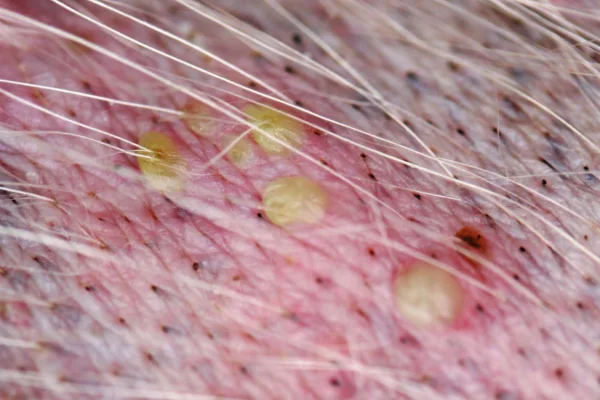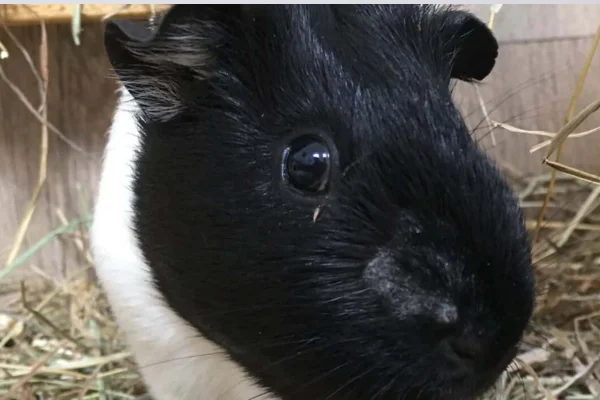How to Identify and Treat External Parasites in Dogs and Cats
Introduction
How to Identify and Treat Parasites - In this article, I'm going to address a common concern among pet owners: the presence of external parasites in dogs and cats. This unpleasant situation can negatively affect the health and well-being of our beloved pets, as well as posing a potential risk to our family. It is therefore crucial to identify and treat these parasites properly. In this detailed guide, you'll find useful information on the most common types of parasites, how to recognize them and the best forms of treatment. Read on and find out how to protect your beloved four-legged friend.
The Most Common Types of External Parasites
1. Fleas
Fleas are tiny parasites that feed on the blood of animals. They are agile and can jump from one animal to another with ease. When a dog or cat is infested with fleas, it is common to observe intense itching, skin irritation, hair loss and even skin allergies. What's more, fleas can also transmit dangerous diseases to our pets. It is therefore essential to eliminate these parasites as soon as possible.
2. Ticks
Ticks are small arachnids that attach themselves to the skin of animals to feed on blood. They are more common outdoors, such as gardens and areas with vegetation. Ticks can transmit serious diseases, such as Lyme disease, to dogs and cats. It is important to regularly check for the presence of these parasites and remove them carefully if they are found.
3. Lice
Lice are parasitic insects that feed on the blood of animals and lodge in their fur and skin. Although they are less common than fleas and ticks, they are still a concern. Symptoms of lice infestation include itching, skin irritation and the presence of nits (lice eggs) in the animal's fur. Appropriate treatments can help eliminate these unwanted parasites.
How to Identify External Parasites
1. visual inspection
The most basic way to identify the presence of external parasites is through careful visual inspection. Take the time to thoroughly examine your pet's fur, especially in the areas where parasites usually hide, such as around the ears, neck, paws and tail. Look for movement, small black dots (flea droppings) or small insects crawling around. These are clear signs of a parasite infestation.
2. Use of special combs and brushes
In addition to visual inspection, the use of special combs and brushes can help identify external parasites. These tools are designed to remove fleas, ticks and lice from the animal's coat. When using the comb or brush, check for the presence of parasites or debris, such as small black dots or eggs.
Appropriate Treatment for External Parasites
Once you have identified external parasites in your dog or cat, it is essential to adopt an appropriate treatment to eliminate them and protect your pet's health. Here are some treatment options:
1. anti-parasitic drugs
There are various anti-parasitic medicines available on the market, such as tablets, pipettes and collars. These products are formulated to kill fleas, ticks and lice, as well as preventing future infestations. It is important to choose a product that is right for your pet, taking into account factors such as age, weight and health history. Always follow the manufacturer's instructions and consult your vet before starting any treatment.
2. Special baths
Some shampoos and bath products are formulated to eliminate fleas, ticks and lice. These products contain active ingredients that kill the parasites and help relieve itching and irritation on the animal's skin. Make sure you choose a product specifically for dogs or cats, as formulations can vary. Follow the product's instructions for use and, if necessary, repeat bathing regularly to ensure the effectiveness of the treatment.
3. Clean environment
As well as treating the animal, it's also important to eliminate parasites from the environment in which it lives. Wash your pet's bed, blankets and toys regularly, using hot water and soap. Vacuum the house frequently, paying special attention to areas where the animal spends the most time. Consider using specific products to eliminate fleas and ticks from the environment, such as sprays and household insecticides. Remember to follow the instructions for use and ensure that these products are safe for your pet.
Prevention of Future Infestations
Preventing infestations by external parasites is fundamental to maintaining the health of your dog or cat. Here are some preventative measures you can take:
1. preventive treatments
Keep your pet on a regular program of preventive treatments against fleas, ticks and lice. There are various products available, such as repellent collars and monthly pipettes. Consult your veterinarian to determine which is the best option for your pet and follow the instructions for use correctly.
2. Hygiene and cleanliness
Maintain a proper hygiene and cleaning routine to avoid infestations by external parasites. Brush your pet's coat regularly to remove dirt, debris and possible parasites. Keep the environment clean by vacuuming the house and washing your pet's bedding regularly.
3. Periodic checks
Check your pet regularly for external parasites. Examine their coat carefully, especially after walks outdoors or contact with other animals. If you notice any signs of infestation, such as excessive itching or the presence of parasites, consult your vet immediately.
Conclusion
Identifying and treating external parasites in dogs and cats is essential to ensure the health and well-being of our beloved pets. Fleas, ticks and lice can cause discomfort, irritation and transmit serious diseases. It's therefore important to be aware of the signs of infestation and adopt appropriate preventative measures and treatments.
Remember that prevention is the key to avoiding future infestations. Keep your pet on a regular program of preventive treatments, maintain proper hygiene and cleanliness and carry out periodic checks. If necessary, always consult your vet for personalized advice.
Protecting your beloved dog or cat from external parasites is an act of love and care. Take good care of your pet and you'll be able to enjoy a healthy and happy life together.
https://vettopbr.com/como-lidar-com-a-ansiedade-em-animais-de-estimacao/








